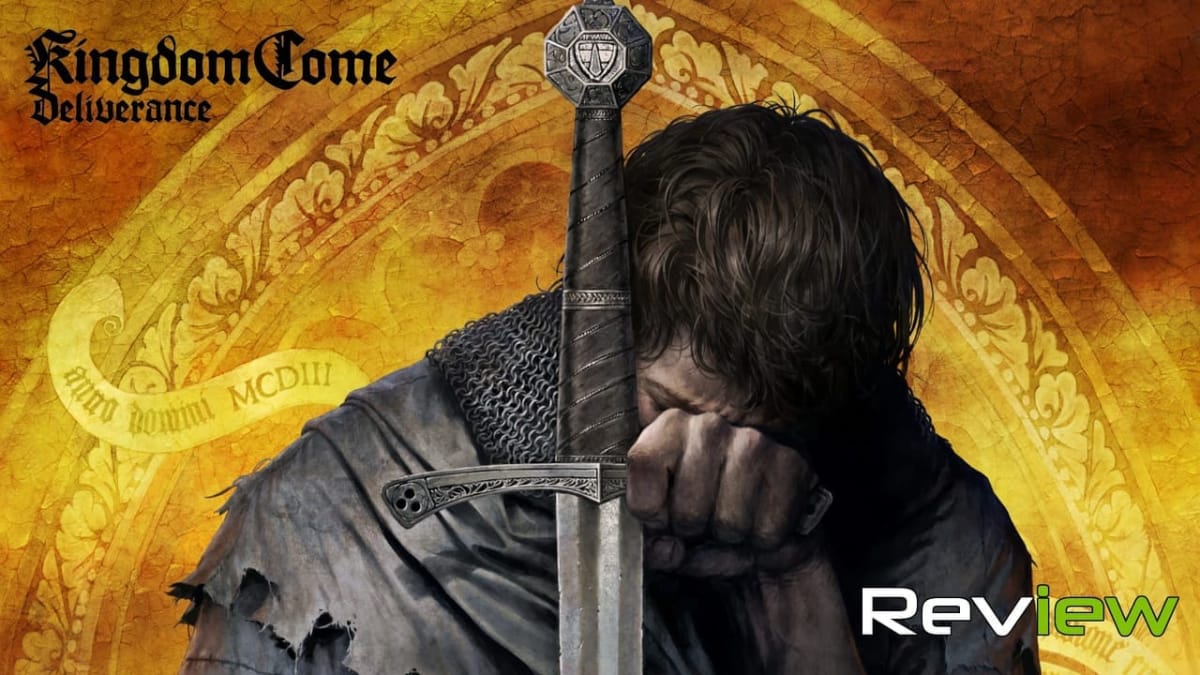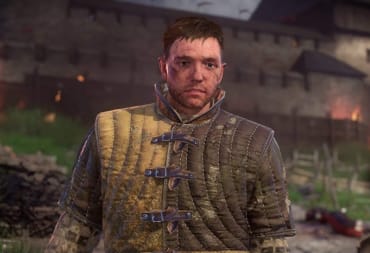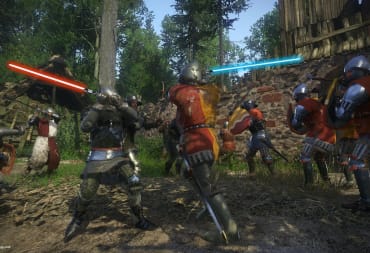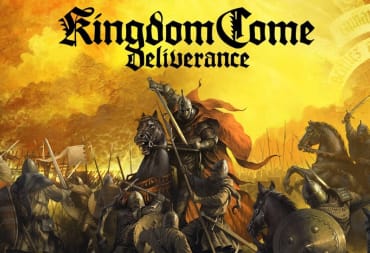Kingdom Come: Deliverance is a “love it or hate it” game. Many have been excited about the prospect of a historically accurate RPG. A title that replaces fantastical elements and epic storytelling with a trip back to the roots of roleplaying, complete with stat blocks and skill-based combat. Others have been hesitant to try out the game. The barrier to entry is high and the numerous reports of bugs and graphical glitches sometimes overshadow the gameplay. Regardless of where you fall on the spectrum, Kingdom Come is an ambitious game. While it is deeply flawed as an experience, it has some merit as an RPG.
The early parts of Kingdom Come are the most solid. Billed as a historically based RPG, the player controls Henry, a twenty-something peasant blacksmith who swears vengeance for the death of his family at the hands of a raiding Lord. Henry is a likable character, and your questlines in the early goings are simple affairs befitting a peasant. As time progresses, Henry becomes more embroiled in the political machinations of the nobility, where new discoveries about his past become revealed that change his outlook forever.
The world of Kingdom Come is as much of a star as Henry. The historical detail found everywhere is frankly impressive. Clearly, Warhorse did their homework in attempting to recreate this corner of Bohemia in 1405. One positive side effect is the game providing an experience for players to learn something tangentially, supplementing it with the gameplay mechanics. Many aspects, from the type of equipment you wear to the peasant jobs you encounter, are period accurate and given extra detail in the in-game codex. History is only factual to a point and Kingdom Come, like any form of historical fiction, embellishes parts of its accuracy to befit the chosen narrative. Still, the minor details and historical names found are on point. This provides not only realistic context to the game, but a personality to make it stand out.
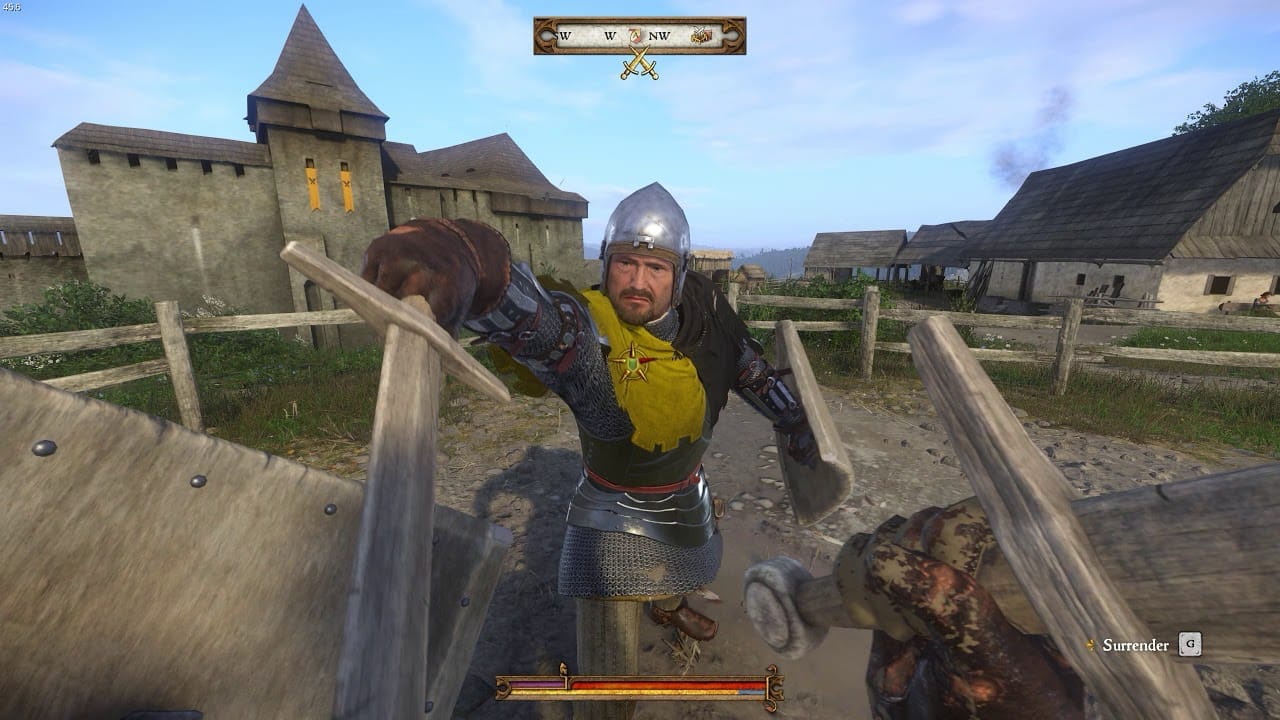
Unfortunately, the best aspect of the game's overall design is that claim of historical realism. Many other aspects of the game's mechanics contort to fit into that realistic experience – often to the game's detriment. The archaic save system is one example. Removing the ability for players to manually save the game was a design choice that attempted immersion but instead broke it fully. The difficult lockpicking and pickpocketing mini-games have been discussed at length by other reviews, in particular, the excessive difficulty of the minigames with a controller.
While recent patches have changed these systems, for a time the game suffered because of these mechanics. It pushed the boundaries for Warhorse as to how realistic the game can get. Combat is another mechanic that is difficult to master, although that is due to it being based on player skill. The closest comparison would be a simpler version of the combat system in Mount and Blade. Your weapon strikes are based on a mix of position and stroke, so players can manipulate the orientation of their weapons to fit their needs. The key to combat here over Mount and Blade is the ability to the string combos together against enemies.
Learning combos is paramount to surviving combat but executing them requires exact timing to hit home. On the PC combos are easier to pull off, but it takes a lot of practice to get the timing down with a controller. The camera is not helpful either. First, it automatically locks onto an opponent when you enter combat. To break the lock on, the player has to manually move the camera, and their point of view, to re-orient it. Again, this creates a sense of realism, especially in the heat of battle. However, it often becomes a difficult challenge to overcome in practice, especially when outnumbered.
There are techniques that help players who struggle to string combos together. Master blocking and master strikes are two major abilities you can learn as the game progresses. Both are interrupts that are time-based, and easier to nail down in a fight. These moves also provide a more strategic aspect to combat, which is great in a one-on-one setting. That said, most of the time combat in Kingdom Come becomes more of a headache than it's worth. This is especially the case when accosted by small groups of well-armed bandits seemingly out of nowhere. The only other instance outside of one-on-one fights where combat becomes fun is mass battles. Pitting Henry in the thick of battle against a throng of enemies showcases the chaotic nature of the combat best. It becomes less of a chore and more fun to experience as Henry and his allies fight through enemy lines.
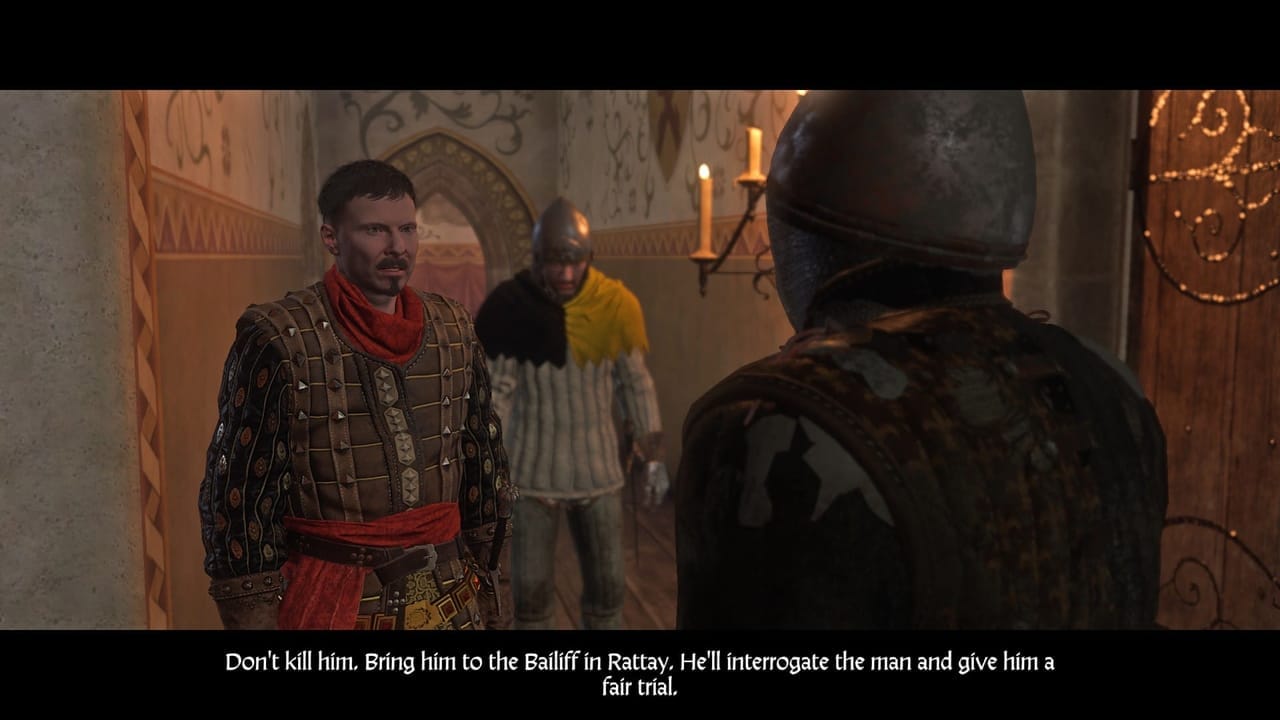
Combat is just one example of the game's mechanics being unique but somewhat broken. The role-playing aspects are also in this category, but mostly due to their imbalance. Leveling up is straightforward. You gain attribute and skill points every few levels that tie into your abilities and playstyle. Rogue characters can focus on thieving, stealth, and agility to become a silent assassin or a skilled cat burglar. Intellectuals can focus on learning to read and craft alchemy, using their charisma to get by in tough situations. There are usually several options present for the player, providing a decent role-playing experience.
Some of the questlines provide a chance to put your skills to the test. A player can convince an apothecary to sell them cheap potions to cure a plague. Conversely, the player can read books to discover and cure the brew it themselves. The player can negotiate the safe surrender of a robber baron for your lord, or simply slay him. Many quests offer a ton of options to complete them, but sadly there are several main questlines that force you into railroaded sequences regardless of how you build your character. Some RPG's get around this better than others of course. For Kingdom Come, the lack of building some of your skills will begin to hinder the player's ability to keep up with the game, forcing them into difficult sections that take away all of the player's agency.
Two big examples of this come to mind. The first is a mandatory boss fight halfway through the game. The only solution is to kill your opponent regardless of your combat skills. Another main questline has you infiltrate a monastery to find, and possibly murder, a wanted criminal. Here, your combat skills are useless and you'll need to focus on stealth and charisma to uncover your quarry. Moments like this are good sequences on paper, even providing emotional weight and tension to the overall narrative. The problem stems from the nature of the game's mechanics. The very Skyrim-styled approach to level up skills not only takes time, but can lead to frustrating sequences that punish the player not because they are unskilled, but instead because they didn't "build" their character properly.
The questlines in Kingdom Come are perhaps the most disappointing aspect of the entire game. Historical realism, even in a fictionalized form, has a lot of drawbacks in how coincidental events are with Henry's participation. Infiltrating the aforementioned monastery, helping cure a plague hitting a town, investigating several murders across the realm; most of the main story has Henry act as the errand boy to his Lord, making sure his will is carried across the land as a hand-picked squire. It is a fairly artificial justification considering your humble beginnings in the first part of the game. Towards the end, the narrative transitions into the more stereotypical "epic" storytelling that often befalls on role-playing games.
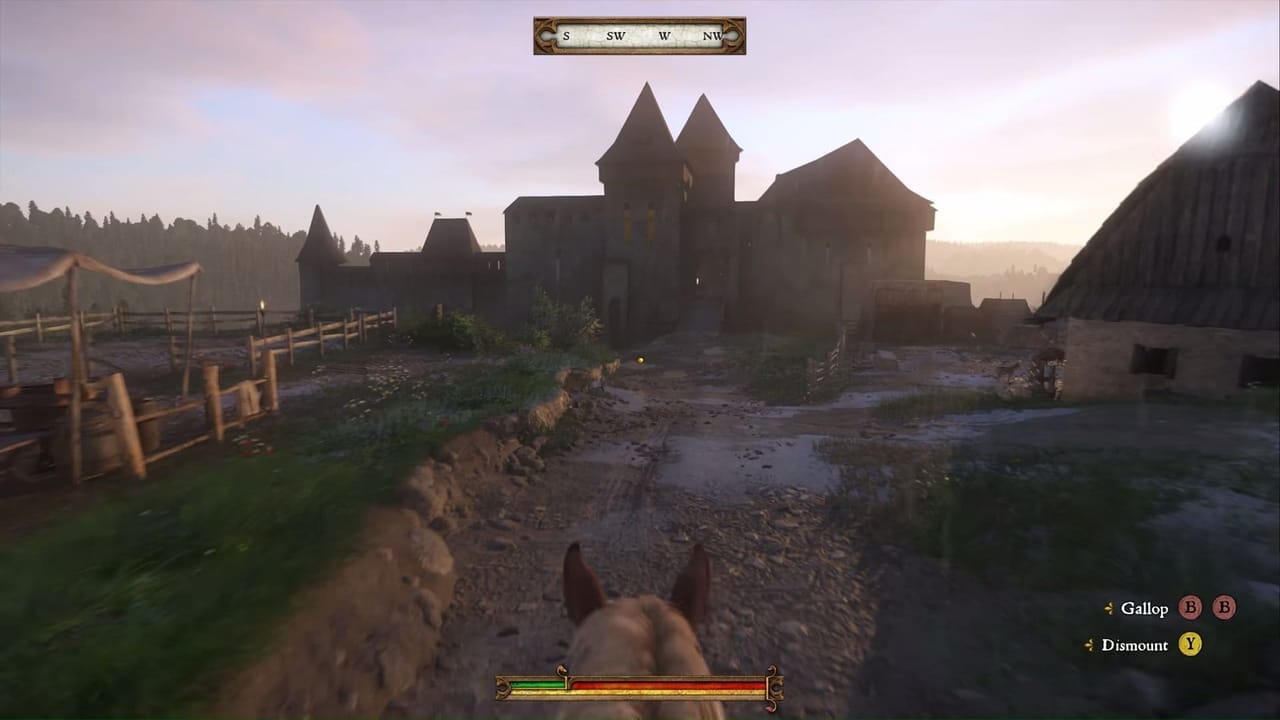
It doesn't help that pacing is all over the place thanks to the game's design. Despite being built on humble beginnings, Kingdom Come’s overall story arc is stock standard when it comes to medieval-styled fiction - the classic revenge story. Henry, of course, will face some telegraphed twists that give us a justification for his involvement with the entire game. Characters outside of a select few NPC’s are paper thin when it comes to their personalities, with most of them playing into the stereotypes you expect. We have spoiled nobles, war-weary veterans, shifty peasants and outspoken priests to name some of the tropes present. The true villains are extremely one-note and never present, the world often feels dead and static when it comes to picking up quest lines at times as well, but the biggest sin of all is how the game struggles in paying off their quests.
Warhorse’s desire to tell a linear narrative heavily clashes with the open-world this time; in turn ruining the illusion of realism it painstakingly tries to uphold. I discussed in the preview some side-quest examples, but even the main quest line suffers from an abrupt conclusion without much of a payoff, save for a hook for a sequel. Poor quest-line conclusions mostly show how they become narratively tone-deaf to the world around them. Sometimes doing a side quest a certain way gives you a bonus in the main questline, which is good design that connects Henry's actions together. These exceptions are few and far between, however. For the majority of the questlines, they often cut off interactions with characters completely, leaving the player wanting more than an overly disappointing conclusion.
It is frankly disappointing where the game goes in its second half. The early stages of Kingdom Come set a great first impression, despite technical flaws. Even though the myriad of bugs and crashes, the mediocre to poor voice acting and graphical glitches, there is an underlying charm to the game that does shine through. Perhaps this is because the ideas behind the game are fresh and unique. It is in some ways an opposite problem to other RPG’s as of late. Games such as Skyrim and Mass Effect: Andromeda offered players a safe, by the numbers narrative that took no risks. Warhorse took a ton of risks with Kingdom Come, and many players, including myself, can respect that. In the end, most of those risks just do not pay off. What we have instead is a very niche hit among role-playing enthusiasts and a cult classic for everyone else.
I really wanted to like Kingdom Come: Deliverance more than I did, but at the end of the day, the conflicting mechanics only compound the technical and narrative flaws the further you get into the game. Historical realism and a unique premise when marketing that to players can only carry the game so far, and with every passing hour the constant inconsistencies, graphical issues, and oddball game mechanics become problematic to the overall experience. There is a good game in Kingdom Come, and it does shine through at times, but often it is an exercise of tedium to overcome its flaws. For players willing to push through those flaws though, Kingdom Come is a game worth trying for yourself.
Our Kingdom Come Deliverance review was conducted on PlayStation 4 with a copy provided by the publisher. The game is also available on Xbox One and PC via Steam and GOG.
Review Summary
I really wanted to like Kingdom Come: Deliverance more than I did, but at the end of the day the conflicting mechanics only compound the technical and narrative flaws the further you get into the game.
(Review Policy)Pros
- Historical Accuracy...
- Attempting Realism...
- Ambitious...
- Some Clever Narrative Set Ups...
Cons
- ...With Historical Fiction.
- ...Conflicting Game Mechanics.
- ...Too Many Risks Don't Payoff.
- ...Poor Narrative Conclusions.
- Numerous Technical Shortcomings.
Have a tip, or want to point out something we missed? Leave a Comment or e-mail us at tips@techraptor.net
